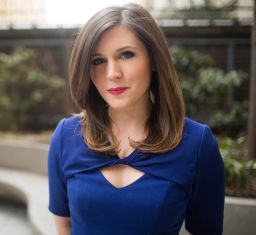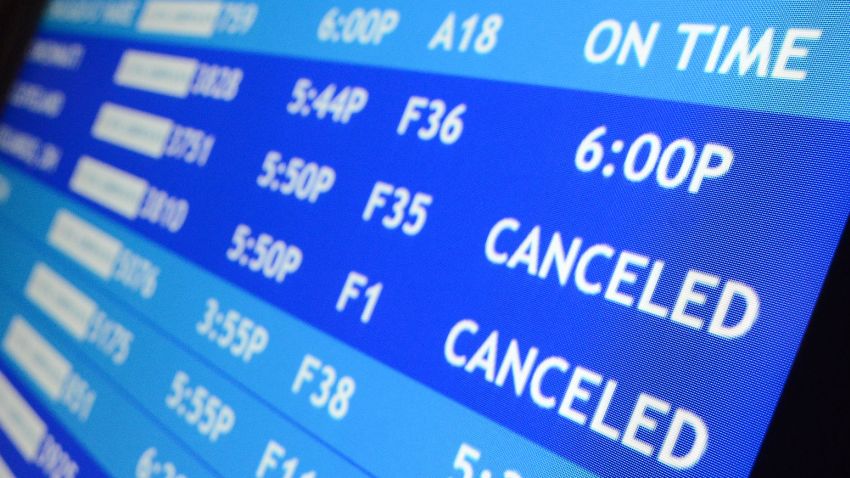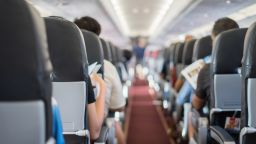Editor’s Note: Jill Filipovic is a journalist based in New York and author of the book “OK Boomer, Let’s Talk: How My Generation Got Left Behind.” Follow her on Twitter. The opinions expressed in this commentary are solely her own. View more opinion on CNN.
In my line of work – and probably yours, too – I cannot collect payment for a service, refuse to perform it, refuse to issue a refund and expect to remain legally and reputationally in the clear. If I did that, and especially if I did it over and over again, I would expect to be sued, shunned and eventually out of a job.

But I’m not an airline.
This week, the Department of Transportation (DOT) announced that six airlines have been forced to issue $600 million in refunds. The DOT is also fining the airlines $7.25 million for flights that were canceled during Covid and not refunded. Those facing fines include Frontier, Air India, TAP Portugal, Aeromexico, El Al and Avianca.
It’s about time this industry saw some consequences. The airline industry posted record profits this past summer, while also canceling and delaying a huge number of flights. When an industry is failing at doing its one job properly and yet is still making money hand over fist, there’s a big problem – and it’s one being borne by consumers.
I’m one of them. I was booked on a TAP Portugal flight to Lisbon in the spring of 2020, which obviously didn’t happen because of Covid. That’s understandable – I didn’t expect to board a flight during a global pandemic. But given that the flight didn’t fly, I did expect my money back. For more than a year and a half, I didn’t get it, despite messages and calls to both TAP and Expedia. Eventually, in December 2021, I received a partial refund, though still far below the full cost of the ticket.
A similar thing happened last Christmas: I flew to Kenya for the holidays on a ticket booked with Chase credit card points, and on Dec. 23, I received an email that Emirates had canceled my return flights – and had, as it turned out, also canceled all of its flights out of Nairobi, stranding my husband and me. We had to book a last-minute one-way flight home on a different airline, during one of the busiest travel periods of the year.
After weeks of back and forth with Emirates and Chase, and in that particular purgatory one is thrust into when trying to recoup one’s losses from two major companies, neither of which wants to take financial responsibility, we were never reimbursed by either – although I do have an expired Emirates credit sitting in my Chase account, a now-invalid offer to fly an airline I hope to never set foot on.
Virtually no other industry is permitted to operate this way. And it is mind-boggling that airlines can sell you a ticket to get from Point A to Point B, not fly the plane from Point A to Point B and then keep your money – or issue you a credit they know you’re unlikely to use, so you can do the same thing all over again.
Covid has, of course, complicated things. Some cancellations are due to lack of staffing. But it’s hard to feel sorry for an industry that accepted massive government bailouts, culled its staff anyway and then says it simply doesn’t have the personnel to operate the flights it scheduled with the full knowledge of its own limitations – especially when that industry has been charging more and raking in record revenue.
According to Transportation Secretary Pete Buttigieg, the DOT will be “ratcheting up the penalty side” until airlines change their behavior. And this is frankly the least they can do. Over and over, airlines exploit the fact that their customer base is a captive one, often desperate to get to where they were going and with little alternative. And so passengers muddle through all kinds of insults and indignities, from major ones like cancelations to more mundane and minor offenses, like seats far too small for the average human and being nickel-and-dimed for expecting to carry on a bag.
At the very least, if airlines do not provide the service they sold – flying an airplane on the day and time scheduled – they should pay up. If they delay flights significantly, they should pay up, or provide passengers with a place to stay and something to eat – without making them stand in hours-long lines to collect measly, limited little vouchers. They should issue reimbursements automatically and swiftly, without requiring passengers to spend hours hounding them for refunds. And if they don’t, they should expect to see exactly what’s happening now, thanks to the Buttigieg DOT: paying far more than if they had just done the right thing in the first place.




